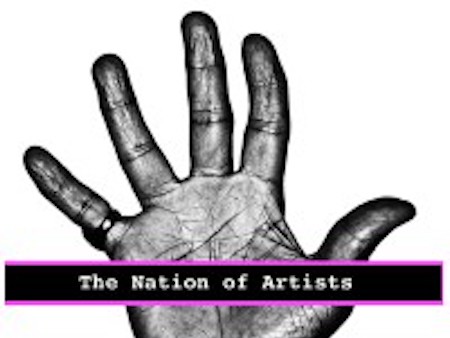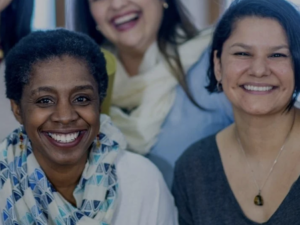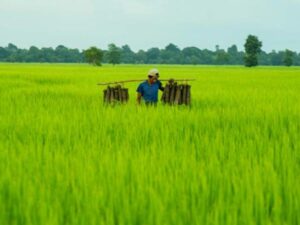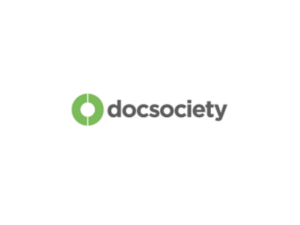The Nation of Artists collaborates with thought leaders to create society-changing content and campaigns in support of social causes.
Elliot Kotek of the Nation of Artists spoke with Priyanka Shankar on April 14, 2023. Click here to read the full conversation with insights highlighted.
Priyanka Shankar: Could you please introduce yourself and tell me a little bit about your work, and the exact problem you’re addressing?
Elliot Kotek: My name is Elliot Kotek. I’m the founder of the Nation of Artists, and we create content and campaigns for the purpose of impact. Our motto is, ideas plus empathy equals impact. We work with big companies and nonprofits to highlight the work that they’re often doing in collaboration to make the world a better place across a variety of issues. Hopefully we are making an impact project-by-project.
Priyanka Shankar: Who exactly benefits from your work? Can you give me an example of the impact of your work?
Elliot Kotek: We believe that collaboration is the answer to making a difference. We don’t think anyone can do anything in isolation. We help brands tell their stories of doing corporate social responsibility work, nonprofit work, or service of the global citizenry, either by doing their own initiatives or partnering with nonprofits. For example, we work with Whirlpool and Habitat for Humanity to tell the story of how their partnership has led to numerous Habitat for Humanity families being given the opportunity to own their own homes, and create a new start for themselves and their families, and build on a legacy that a lot of people on the wrong side of the wealth gap are struggling to afford. As you can imagine, having a home opens so many possibilities for you, from the immediacy of having a secure and safe place to live to being able to pass something along to the next generation so that they have a leg up and don’t have to struggle with the same security issues around housing.
We have a project, actually, launching today on the Water Bear Network, called Unzipped. It’s about the housing affordability crisis. It’s set in the U.S., in Venice Beach, and it paints a picture of how the wealth gap and the inequality in the U.S., as well as policy, has led to this growing divide in people who are housed and unhoused, as well as people who can afford substandard housing, and how difficult that process is.
By shining a light on the humanity behind that, the people that are struggling with that, as well as some potential solutions, we are hoping that we can drive people towards making a difference where they live by visiting the Unzipped Impact Hub, and projects like that.
We work with the United Nations Development Program and Hyundai on a project called For Tomorrow where we’re highlighting the work of grassroots innovators around the world who are solving big issues of our day on a local basis. We believe that amplifying their voices and their solutions is a unique prospect. Oftentimes we focus on big tech and big academia as the ones solving problems for the rest of the world, but this is a look at roundup problem-solving that can have an impact on a local and global level in aggregate.
Priyanka Shankar: What are some of the challenges that you face and how do you approach them?
Elliot Kotek: For me, the challenge is really one of time. We’re happy to come up with ideas for ways people can collaborate, but it takes time to get people to the table. Then, it takes time for people to get from the table to a place of action, to be ready for action. Other times it takes time for people to agree on a path forward. So for me, it’s not necessarily a struggle of logistics. Everything is doable as long as people come together. I believe everyone is passionate about something, but oftentimes they struggle to find a way to focus those passions. Once you can create that focus, then that becomes your purpose. If you start talking about your purpose, then you find those people who can collaborate with you, and with your people anything is possible.
Priyanka Shankar: How do you measure success?
Elliot Kotek: Measuring success is an interesting prospect, especially in impact. There are so many different organizations that are struggling with how to create viable measures for success, especially in the financial sector. We have a measure for success that sounds like it should be the child of two Harry Potter characters. We measure success using a scale we call Malco, M-A-L-C-O. We have traditional measurements, which is the M, that are things like media impressions and how many eyeballs something is getting. We hope to have success on that level by a combination of earned and paid strategies.
Then we have the A, which is awards. Sometimes having the awards can amplify a project and make it more visible to more people in more places. Awards also make the people who got behind the project and funded it in the first place feel satisfied that they met their key performance indicators. That helps them feel good on a professional level.
The next one is, L, what kind of longevity does the project have? Is it something that feels like a stunt? Or is it something that can continue to be out in the world, and continue to proliferate as the project develops and is sustained? The C is conversations. What conversations does it drive? And O is what opportunities does it create for the people who are in the project, as well as for people who are watching it. Do they now know that some new reality is possible as a result of having seen the work?
Priyanka Shankar: How do you plan to scale your business in the next couple of years? Are there any other interesting projects you’re working on?
Elliot Kotek: Scale is always just a matter of time and energy for us. We always have more ideas than we have funding for at any particular time. We have projects that are waiting on our slate, that are about confronting hatred, how we come together in terms of interfaith movements, and other things that can change the world for the better and bring people to places of commonality and agreement. I like to say that if we can create a path towards and reach a level of tolerating each other, then maybe that’s the least we can ask for. A lot of people strive for love as the high goal, but tolerance would also get us far in terms of being able to sit with each other and listen to each other. That might lead to more understanding and acceptance.
We have projects that are about the food supply chain. We have projects that are about fast fashion versus slow fashion. One of our projects is called the TikTok Holocaust Project, about an 87-year-old Holocaust survivor who has over 400,000 followers on TikTok and is using the platform to dispel messages of hatred in terms of anti-Semitism or AAPI hate or Black Lives Matter hatred. We have projects with Preservation Hall, which is a jazz club in New Orleans that we’re helping out. One is about how we pass culture along from one generation to the next and another one is about the world of New Orleans Jazz. We have projects like Black boys and Black girls, which shows the humanitarian problems that the Black community is facing in the U.S., and hopes to celebrate more of the human experience that Black boys and Black girls contribute.
We have no problem with the number of projects that we want to tell. It’s just always a question of where the financing will come from. We like to say that we love what we do, we just want to do more of it. We want to continue doing it bigger, and we want to work with good people. If there are any people who are out there who want to do that with us, we’d be more than happy to come together and have a coffee and a chat.
I think you always have to strive for hope and humanity in everything you do. You can’t just point a lens at all the problems that the world has, that can lead people to get mired in analysis paralysis. We have to show the humanitarian side of things. There’s those phrases, like when you tell a story, no stories without numbers, no numbers without stories. You don’t know what’s going to resonate with people on a daily basis, whether you’re going to connect with them on the head or the heart, so we try and do both if we can.
Priyanka Shankar: How did you start this work? What was the inspiration? Are there lessons other social innovators could learn?
Elliot Kotek: The lesson for me is that no matter what stage you’re at, there are always people who want to collaborate with you. If you are a young filmmaker, there’s very little cost to entry. The cameras are everywhere, including incredible cameras on our phones. It’s really just a case of being able to state what you’re looking for or what you want to work on, or collaborating with other people who have stated something that gets you excited. No matter what stage of the business you’re at, what stage of storytelling or filmmaking that you want to contribute to, there is a path available to you pretty much anywhere in the world, if you can find that community and connect with them. And we are more connected than we’ve ever been before. Social media is criticized for dividing us, but it is also an incredible tool to be used for the power of connection.
When I started, I came from a different background. I have a science degree and a law degree, and then I went to theater school, which is the opposite way of doing things for most people. I started collaborating with people. I was a journalist as well, and so I met a lot of documentary filmmakers as I moved through, and we just decided to start working on projects together. At first they had very little financing attached to them, but we did the projects anyway. I think that is key, if you want to do something there’s a path to getting there, you just have to take that first step and find the people who want to do that with you.
Priyanka Shankar: On that inspiring note, I was wondering if there’s anything else you’d like to add that I haven’t asked you already?
Elliot Kotek: It’s the notion of tolerance that we love. We work in collaboration with people. Oftentimes they’re coming from completely different backgrounds, but if you have that curiosity about other people and you’re willing to sit with them and talk with them and find out what their stories are, you’ll often find points of commonality and points that you can rally behind. Everyone has basic needs and everyone has a need to be heard and understood and to feel a sense of belonging.
We have a campaign at the moment called I Am More Than, where I sat down with a lot of kids to talk about where they feel a sense of belonging. We did this for a nonprofit called First, a nonprofit around STEM education. The kids didn’t even know what the project was for, they just wanted to talk about where their comfort levels were, what stereotypes they were always being defined by, and how they need to be allowed to express themselves and be given time to explore and find that place where they feel themselves. I think that’s what we all really yearn for so if we can, through our work or the work we do in collaboration with others, get to that place of more tolerance and more understanding, and that concept of empathy and humanity, then, like I said, ideas plus empathy equals impact. That’s the path we believe in.
Priyanka Shankar: Thank you so much for talking with me today and sharing your insights.
Click here to read the full conversation with insights highlighted.
Priyanka Shankar is an independent journalist currently based in Brussels. She mainly covers stories about human rights, migration and Europe’s relations with Asia. Outside a newsroom you can find her rambling along mountains or scuba diving.
* This interview has been edited and condensed.
Find other organizations creating social innovation through narrative.







